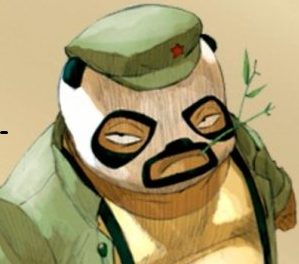

I’m not ignoring Euromaidan or the broader post-Soviet fallout—I just don’t think they justify Russia’s actions. If anything, they reinforce my argument.
Euromaidan wasn’t some Western-orchestrated coup; it was a mass uprising driven by Ukrainians rejecting a corrupt, Russia-aligned government that tried to back out of closer ties with the EU. The response? Russia annexed Crimea and fueled a separatist war in Donbas. That wasn’t some inevitable “material consequence” of Soviet dissolution—it was a calculated move to punish Ukraine for stepping out of Russia’s shadow.
Yes, many Russians support the war—but why? Because Putin controls the media, suppresses opposition, and jails or kills dissenters. When you control the narrative, you control public opinion. That doesn’t make the war justified—it just means propaganda works. The idea that Russia had to invade due to “material reasons” falls apart when you consider that no actual threat existed. NATO wasn’t invading. Ukraine wasn’t attacking Russia. The only “threat” was Ukraine choosing its own path, and Putin couldn’t tolerate that.
Putin’s actions tell the real story. He has repeatedly stated that Ukraine is not a real country and that its independence was a mistake. That isn’t about NATO. That isn’t about self-defense. That’s about control. If NATO weren’t the excuse, something else would be.
You’re right that history is complicated—but some things are simple. Invading a sovereign nation because you don’t like its direction isn’t a “material necessity.” It’s imperialism.
I appreciate the depth of this discussion, and I think we might be closer in our views than it initially appears. I agree that material conditions matter—history, economics, and geopolitical realities all create the environment in which decisions are made. NATO expansion did change the security landscape in Eastern Europe, and the fallout from the Soviet collapse created complex dynamics we’re still witnessing today.
Where I think we differ is in how we understand the decision to invade. Material conditions create contexts, but they don’t predetermine military aggression. Putin’s choice to invade has resulted in catastrophic humanitarian consequences—tens of thousands dead, millions displaced, cities reduced to rubble, and countless lives shattered. These aren’t abstract policy outcomes but profound human tragedies that demand accountability.
The material analysis also cuts both ways. If we’re talking about material interests, what about Ukraine’s? Their desire for security guarantees after watching Russia’s actions in Georgia and Crimea represents a material reality too. Their concerns about Russian aggression weren’t imaginary—they were based on observed patterns.
I still maintain that Russia’s actions reflect more than just defensive security concerns. The rhetoric about “one people,” the denial of Ukrainian identity, the installation of Russian educational systems in occupied territories— they are words and actions that point to imperial ambitions beyond simply keeping NATO at bay.
Perhaps the most productive approach is to recognize both material conditions and leadership decisions as essential parts of the analysis, while never losing sight of the real human beings whose lives have been devastated by this war.